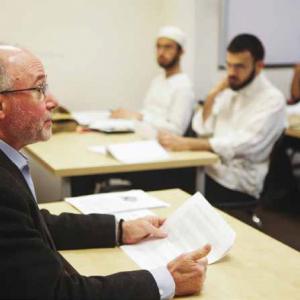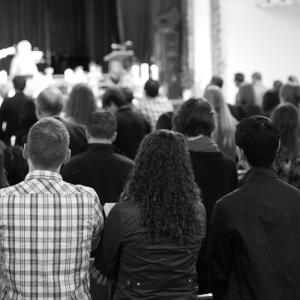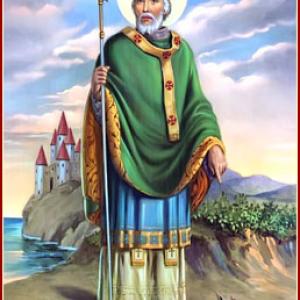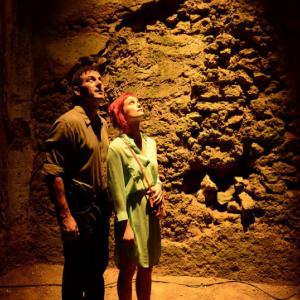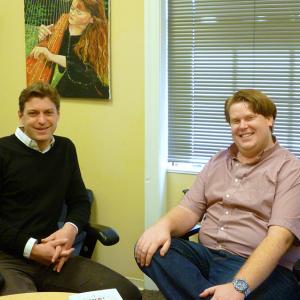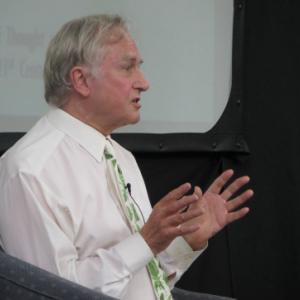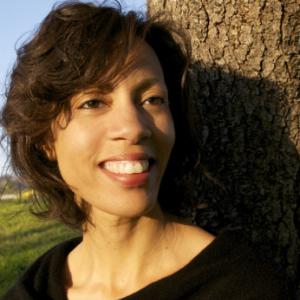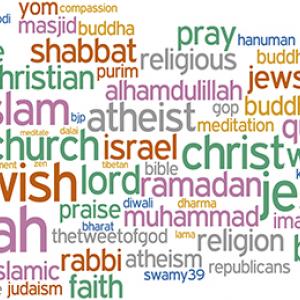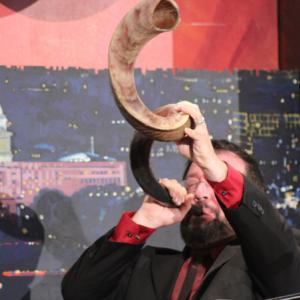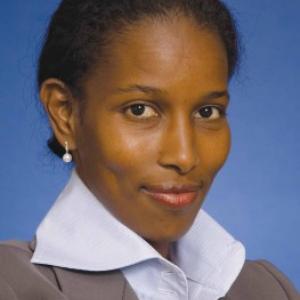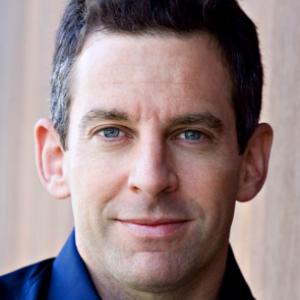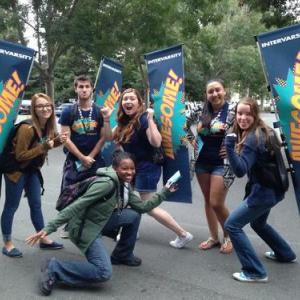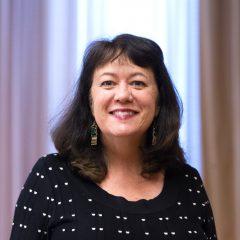
Kimberly Winston is a freelance religion reporter whose work has appeared in the Washington Post, USA Today, and the Chicago Tribune. She is the 2005 recipient of the American Academy of Relgion's award for best religion reporting.
Posts By This Author
Zaytuna College Recognized as First Accredited Muslim College in the U.S.
A college that requires the study of both Wordsworth and the Quran for graduation is now the first fully accredited Islamic university in America.
Zaytuna College, a five-year-old institution in Berkeley, Calif., was recognized in March by the Western Association of Schools and Colleges, an academic organization that oversees public and private colleges and universities in the U.S.
The accreditation means Zaytuna, which owns only two buildings and has 50 students, is a legitimate institution of higher learning, only a few blocks from its esteemed neighbor, the University of California, Berkeley.
“Being accredited puts us at the same table” as other accredited colleges and universities, said Colleen Keyes, Zaytuna’s vice president of academic affairs.
“It makes us equal partners.”
For faculty — of which Zaytuna has 15 — it lends credibility and status.
Prominent San Francisco Evangelical Church Drops Celibacy Requirement for LGBT Members
A prominent evangelical Christian church in San Francisco has announced it will no longer ask members who are lesbian, gay, bisexual, or transgender to remain celibate.
“We will no longer discriminate based on sexual orientation and demand lifelong celibacy as a precondition for joining,” senior pastor Fred Harrell, Sr. and six board members of City Church, one of the largest members of the Reformed Church in America denomination, wrote to members in a letter emailed to members March 13.
The church, which claims about 1,000 attendees and meets at two San Francisco locations, has long welcomed LGBT persons to attend, but has required life-long celibacy of those LGBT persons seeking membership.
“Imagine feeling this from your family or religious community,” the letter states.
“‘If you stay, you must accept celibacy with no hope that you too might one day enjoy the fullness of intellectual, spiritual, emotional, psychological and physical companionship. If you pursue a lifelong partnership, you are rejected.’ This is simply not working and people are being hurt. We must listen and respond.”
City Church’s action places it in the ranks of at least two other large, urban evangelical congregations that have reversed their policies requiring celibacy for gay members. In January, both Nashville’s GracePointe Church and Seattle’s EastLake Community Church reversed their celibacy policies.
The policy of many evangelical denominations and independent churches is that homosexuality is “incompatible” with the Bible and therefore cannot be tolerated among members, or the broader society.
Who Was St. Patrick, and Would He Drink Green Beer?
For Catholics, Episcopalians and some Lutherans, March 17 is the Feast Day of St. Patrick. For the rest of us, it’s St. Patrick’s Day — a midweek excuse to party until we’re green in the face. But who was Patrick? Did he really drive the snakes out of Ireland or use the shamrock to explain the Trinity? Why should this fifth-century priest be remembered on this day?
Q: Was St. Patrick a real guy, and would he approve of green beer?
A: Yes, Patrick was a real person, but not much is known of his life. He was born in the late 300s when the Roman Empire extended to England, so he was not “really” Irish — like the vast majority of people who celebrate his day. In his “Confessio,” one of only two surviving documents attributed to him, Patrick wrote that while his father was a Christian deacon, he was not devout. At age 16, Patrick was captured by Irish marauders, carried across the Irish Sea and enslaved. Patrick spent six years alone in the wilderness tending his master’s sheep, praying constantly. “It was among foreigners that it was seen how little I was,” he wrote. He began to have visions and hear voices that told him: “Look, your ship is ready.” So Patrick left his first flock and walked 200 miles to the coast. It’s a pretty safe bet he would have loved a beer, green or otherwise, as he stepped into a boat bound for England.
‘Dig’ Digs Into the Bible — But Is It ‘True?'
Breathlessly describing his new USA Network series “Dig” in a promo, leading man Jason Isaacs promises “everything is based on reality and true.”
To a point.
The new series, which premiered March 5, moves quickly between multiple story lines and locations, bouncing off prophesies and spinning conspiracies around the Second Coming of Christ, the Book of Revelation and the restoration of the Jewish Temple in Jerusalem, where much of the series is filmed.
Throw in a high priest’s magical breastplate, a spotless red heifer, and a doomsday Christian group living in a bunker and the series becomes the would-be love-child of Steven Spielberg and Dan Brown.
And that’s just the first episode.
So What's the Deal With Ash Wednesday?
Chances are you’ll see a bunch of folks walking around with shmutz on their foreheads this Wednesday. The ‘Splainer asks what having a dirty forehead has to do with being a Christian and why this ritual is gaining in popularity.
Q: Excuse me, but why do you have dirt on your forehead?
A: Wednesday is Ash Wednesday, the day many Christians mark as the first day of Lent, the time of reflection and penitence leading up to Easter Sunday. Clergy all over the world dispense ashes, usually made by burning the palm fronds distributed on last year’s Palm Sunday, making the sign of the cross on the bowed foreheads before them. As they “impose” or “dispense” the ashes, the pastor or priest reminds each Christian of Genesis 3:19: “For dust you are and to dust you shall return.”
Q: Well, that’s cheerful. Why would anyone want to start a workday on such a downer?
A: It isn’t intended to be a downer. It’s supposed to be a reminder that our lives are short and we must live them to the fullest. OK, maybe it’s a little bit of a downer — that verse from Genesis is what God said to Adam and Eve when he expelled them from the Garden of Eden for their sins. But there’s a big party the night before Ash Wednesday. That’s Mardi Gras, or “Fat Tuesday,” a secular observance that evolved out of “Shrove Tuesday,” the last hurrah – usually marked by eating of pancakes or other sinfully sweet foods – before the solemnity and penance of Lent set in.
You Can Really Call This Wine ‘Vintage Francis’
It was a good thing for Trinitas Cellars that Cardinal Jorge Mario Bergoglio took the name Pope Francis, and not, say Pope Malbecius.
When the Argentine cardinal became pope in 2013, Trinitas didn’t have any malbec — the famous Argentine grape — in its cellars. But it happened to have a few barrels of cabernet franc.
Behold! Thus was born “Cabernet FRANCis,” a 2012 red wine from Trinitas, a Catholic-owned winery nestled behind the iconic grape crusher statue at the southern foot of the Napa Valley.
“People kept asking me, ‘Why didn’t you make the pope a malbec?’” said Garrett Busch, the 28-year-old CEO of Trinitas, as he spoke in the winery’s book-lined library tasting room, a bottle of the wine before him. “And I’m like, ‘Come on guys, he made it easy on us.’”
Actually, the story is a bit more complicated. Trinitas, which is owned by Garrett’s parents, Tim and Steph Busch, made the family’s Catholic faith a part of business since its founding in 2002. Meetings and special events begin with prayer, winery dinners start with grace, and the winery’s website announces the family’s intention to “serve God in all they do.”
Even its name is Latin for the Trinity of Father, Son and Holy Ghost.
Secular Solstice: Doing Good for Goodness’ Sake
It’s a common ritual in religious observances this time of year: Light a candle against the darkness, the winter, the uncertainty of the world.
But a newly minted observance called Secular Solstice adds its own spin. Those lighting the candles are nonbelievers — humanists, atheists, skeptics, and other freethinkers — and the candles represent no unseen divinity, but the actions and intentions of those who light them to make the world a better place.
“We live in a world beyond the reach of God,” one of the service’s many readers said as 130 or so people gathered huddled over white candles in glass votives at Humanist Hall — a purple-painted house near downtown Oakland. “It is a hard universe. If we want to build a softer universe we will have to do it ourselves.” As a choir broke into “Here Comes the Sun,” an inscription painted on the wall beamed down upon the gathered, “The world is my country, to do good is my religion.”
Secular Solstice is the handiwork of Raymond Arnold, a 28-year-old Catholic-turned-humanist who wanted to do something meaningful with friends in mid-December. He put together the first Secular Solstice — a two-hour blend of music and readings by candlelight — last year in New York, where he works as a web developer.
He struck a nerve — the first Secular Solstice was packed, and this year there will be Secular Solstices in New York, Seattle, San Diego, and Leipzig, Germany.
Online Troll or Therapist? Atheist Evangelists See Their Work as a Calling
Two years ago, “Max” was a devout Catholic who loved his faith so much he would sometimes cry as he swallowed the Communion wafer.
Then came the Sandy Hook Elementary School massacre, where 20 schoolchildren and six adults were murdered by a troubled gunman. At that moment, a bell went off in his head, he said, ringing “there is no God, there is no God.”
Now, Max goes by his online handle “Atheist Max.” A 50-something professional artist from the Northeast, some days he now spends two or more hours online trying to argue people out of their religious beliefs in the comments section of Religion News Service.
Max left more than 3,600 comments in the past 12 months, making him RNS’ top commenter. Many of his remarks can be interpreted as angry, hostile, and provocative, casting him in some minds as an Internet “troll” — a purposely disruptive online activist who delights in creating comment chaos.
He’s written “Jesus is despicable” or its equivalent more than once — red meat to some readers who come back at him with fervor. Other users have called him “mean-spirited” or “angry.”
Ten Commandments for Atheists: A Guide for Nonbelievers Who Want to Explore Their Values
“There are lots of books out there about why you should not believe in God,” Bayer said. “But there aren’t any about what do secular people believe in. I think that’s the question John and I felt hadn’t been adequately addressed.”
In exploring that, the two men — both whom have studied philosophy and logic — came up with 10 essentials. For the extra-nerdy, there’s even “a theorem of belief” in the appendix that looks like something a mathematician might scribble.
The result is 10 “non-commandments” — the authors’ irreducible statements of atheist and humanist belief.
First up: “The world is real, and our desire to understand the world is the basis for belief.”
No. 2 on the list: “We can perceive the world only through our human senses.”
Halfway through, at No. 5, the authors conclude: “There is no God.” Once over that hurdle, the non-commandments become less controversial — an ethical society is good, as is moral behavior.
Richard Dawkins Stands by Offensive Remarks
As the world’s most famous atheist, Richard Dawkins is no stranger to criticism from religious believers.
But in recent months, a few of his opinions have riled many in the atheist community as well. Remarks he made on Twitter and elsewhere on subjects ranging from sexual harassment (“stop whining”) to Down syndrome fetuses (“abort and try again”) have sparked suggestions from some fellow nonbelievers that he would serve atheism better by keeping quiet.
When asked about his controversial July tweets on pedophilia — Dawkins opined that some attacks on children are “worse” than others — the 73-year-old British evolutionary biologist and best-selling New York Times author declined to be interviewed.
But on a speaking tour through the San Francisco Bay Area in support of his new memoir, “An Appetite for Wonder,” he invited a reporter to sit down with him and explore the thinking behind his remarks.
Bottom line: He stands by everything he has said — including comments that one form of rape or pedophilia is “worse” than another, and that a drunken woman who is raped might be responsible for her fate.
Do Black Atheists Have Different Concerns Than White Atheists?
Absolutely, say organizers of a first-of-its-kind conference to be held by atheists of color in Los Angeles this weekend. And, they add, it’s about time those issues got some attention.
Called “Moving Social Justice,” the conference will tackle topics beyond the usual atheist conference fare of confronting religious believers and promoting science education. Instead, organizers hope to examine issues of special interest to nonwhite atheists, especially the ills rooted in economic and social inequality.
“Atheism is not a monolithic, monochromatic movement,” said Sikivu Hutchinson, an atheist activist, author and founder of Los Angeles’ Black Skeptics, one member of a coalition of black atheist and humanist groups staging the conference.
“By addressing issues that are culturally and politically relevant to communities of color, we are addressing a range of things that are not typically addressed within the mainstream atheist movement.”
The conference is unusual for an atheist gathering in another important way — its lineup of speakers includes members of the religious community. Hutchinson, often an outspoken critic of religion, described the conference as “effectively an interfaith conference.”
Atheists Tweet More Often than Muslims, Jews, Christians, Study Shows
What does a map of the U.S. religious landscape look like in 140 characters?
A new study of Twitter finds that self-identified religious users are more likely to tweet to members of their own faith than to members of a different one. The study examined people whose Twitter profiles identified them as Christian, Jewish, Muslim, Buddhist, Hindu and atheist.
And while adherents of all six groups studied tweet frequently, atheists — among the smallest populations in the U.S. — are the most prolific.
“On average, we can say the atheists have more friends, more followers, and they tweet more,” said Lu Chen, a doctoral candidate at the Kno.e.sis Center at Wright State University who co-authored the study with Adam Okulicz-Kozaryn of Rutgers University-Camden. They will present their findings in November at the sixth annual International Conference on Social Informatics.
Atheist Coalition Wants You to Know They Are ‘Openly Secular’
A new coalition of atheists, humanists and other nonreligious groups is taking a page from the gay rights movement and encouraging people to admit they are “openly secular.”
The coalition — unprecedented in its scope — is broadening a trend of reaching out to religious people and religious groups by making the secular label a catchall for people who are not religious.
“We wanted to rise above who is an atheist, who is an agnostic, who is a humanist, who is a secular Jew,” said Todd Stiefel, founder of the Stiefel Freethought Foundation and a main force behind the coalition. “This needed to be about something everyone could rally behind so we intentionally used the word secular because it was one thing we could all agree on.”
The campaign, “Openly Secular: Opening Minds, Changing Hearts,” was unveiled at the 65th annual gathering of the Religion Newswriters Association here on Sept. 20. It includes a website, resources for families, employers and clergy, and a YouTube channel featuring both prominent and rank-and-file nonbelievers announcing their names followed by the declaration, “I am openly secular.”
The Jewish High Holy Days Explained
Happy 5775! At sundown on Sept. 24, Jews around the world will turn the page on the Jewish calendar to begin the new year, Rosh Hashanah. What starts with a feast at home will end 10 days later with a fast in the synagogue on Yom Kippur, the Day of Atonement. This time is referred to as “The Days of Awe” as Jews move between repentance and forgiveness, reflection and renewal.
Here’s everything goyim need to know about the High Holy Days so they can holler “L’shanah tovah!” — or “Happy New Year!” — without looking like a shmendrick.
Q: What do Jews celebrate on Rosh Hashanah and Yom Kippur?
A: The new year is celebrated with family and friends, but Jews are also expected to think about the meaning and direction of their lives. How could they have been better Jews? Better human beings? That comes full circle on Yom Kippur, when Jews fast for a whole day and reflect on their faults and the ways they have wronged people throughout the year. It is a holiday for making amends, for seeking and giving forgiveness.
Q: Well, ain’t that a party? Sign me up. KIDDING!
Mormons Embrace Social Media to Push Back Against Official Church Teachings
It was a gathering that would have been unthinkable just five years ago.
On a cool summer evening, in a borrowed classroom overlooking San Francisco Bay, about 150 men and women gathered to screen a short documentary about a Mormon family whose 13-year-old son came out as gay.
The Montgomerys, who accepted their son and his news, were ostracized by church members, some of whom refused to accept Communion distributed by the young man in church. Like many conservative Christian denominations, the 15 million-member Church of Jesus Christ of Latter-day Saints bans homosexual activity and considers it grounds for exclusion from Mormon rites, rituals and even the afterlife.
Ayaan Hirsi Ali Draws Criticism from Fellow Atheists at Yale
A campus appearance by Ayaan Hirsi Ali, the outspoken Muslim-turned-atheist activist, is being challenged again, this time at Yale University where she is scheduled to speak Sept. 15.
While her previous campus critics have included members of religious groups, especially Muslims, this time the critics include Ali’s fellow ex-Muslims and atheists.
“We do not believe Ayaan Hirsi Ali represents the totality of the ex-Muslim experience,” members of Yale Atheists, Humanists and Agnostics posted on Facebook Sept. 12. “Although we acknowledge the value of her story, we do not endorse her blanket statements on all Muslims and Islam.”
Those statements include calling Islam “the new fascism” and “a destructive, nihilistic cult of death.” She has called for the closing of Muslim schools in the West, where she settled after immigrating from her native Somalia, and is a vocal advocate for the rights of women and girls in Islam.
Sam Harris Wants Atheists – And Everyone Else – to Get Spirituality
Uber-atheist Sam Harris is getting all spiritual.
In his new book, “Waking Up: A Guide to Spirituality Without Religion,” the usually outspoken critic of religion describes how spirituality can and must be divorced from religion if the human mind is to reach its full potential.
“Our world is dangerously riven by religious doctrines that all educated people should condemn,” he writes in the book, but adds: “There is more to understanding the human condition than science and secular culture generally admit.”
The prescription, Harris holds, is Buddhist-based mindfulness meditation. A Stanford-trained neuroscientist, Harris is a long-time practitioner of Buddhist meditation. He said everyone can, through meditation, achieve a “shift in perspective” by moving beyond a sense of self to reach an enlightening sense of connectedness — a spirituality.
Atheists Want You to Sit Down for the Pledge of Allegiance
Sit down and shut up.
That’s the message of a campaign launched Sept. 8 by the American Humanist Association, asking Americans to refrain from standing and reciting the Pledge of Allegiance until Congress removes the phrase “under God.”
The 29,000-member humanist activist group, which also advocates on First Amendment issues, holds that the phrase “under God” is an unconstitutional establishment of religion.
“Until the Pledge is restored to its inclusive version, we can take it upon ourselves to refuse to participate in what’s become a discriminatory exercise,” the campaign’s website, Don’t Say the Pledge, says. It also describes the current pledge as “twisted, with divisive religious language that implies true patriots must be believers.”
Christian Group Denied Recognition at Two Dozen College Campuses
A well-established international Christian student group is being denied recognition at almost two dozen California college campuses because it requires leaders to adhere to Christian beliefs, effectively closing its leadership ranks to non-Christians and gays.
California State University, which has 23 campuses, is “de-recognizing” local chapters of InterVarsity Christian Fellowship, an evangelical Christian group with 860 chapters in the United States. The university system says InterVarsity’s leadership policy conflicts with its state-mandated nondiscrimination policy requiring membership and leadership in all official student groups be open to all.
“For an organization to be recognized, they must sign a general nondiscrimination policy,” said Mike Uhlencamp, director of public affairs for the California State University system. “We have engaged with (InterVarsity) for the better part of a year and informed them they would have to sign a general nondiscrimination statement. They have not.”
Airman Denied Re-entry to Air Force for Refusing to Say ‘So Help Me God’
The American Humanist Association said Sept. 4 that an airman at Nevada’s Creech Air Force Base who crossed out “so help me God” in the oath the Air Force requires servicemen and women to sign was told in August he must sign it as is or leave the Air Force.
The AHA’s Appignani Humanist Legal Center sent a letter to the Air Force on the airman’s behalf demanding he be allowed to sign a secular version of the oath. The U.S. Constitution allows freedom of religious beliefs and prohibits religious tests for holding public office or public trust, the letter states.
The airman’s name is being withheld by AHA.
“The Supreme Court has held on a number of occasions that it is unconstitutional to force anyone to take an oath that affirms the existence of a supreme being,” said Monica Miller, an attorney for AHA and author of the letter. “Numerous federal courts have specifically held that forcing an atheist to swear to God violates the Free Exercise Clause as well as the Establishment Clause.”
